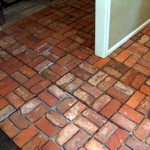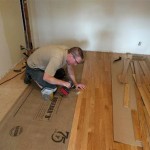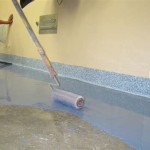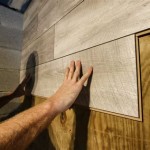DIY Vinyl Flooring: Essential Guide to a Flawless Installation
Vinyl flooring has gained immense popularity due to its durability, water resistance, and aesthetic appeal. Installing vinyl flooring yourself can be a rewarding and cost-effective project with proper planning and preparation. Here's a comprehensive guide to help you achieve a professional-looking vinyl flooring installation.
1. Preparation
Before beginning the installation, it's crucial to prepare your subfloor. The surface should be clean, level, and free from moisture. If necessary, level any uneven surfaces using a self-leveling compound or plywood underlayment. Ensure the subfloor is completely dry before proceeding.
2. Underlayment
Underlayment is a thin layer that goes between the subfloor and the vinyl flooring. It provides soundproofing, insulation, and additional cushioning underfoot. Choose an underlayment that is compatible with your vinyl flooring and subfloor type.
3. Determine Your Layout
Plan the layout of your vinyl flooring before starting the installation. Measure the room and determine the direction in which you want the planks to run. Make sure to leave an expansion gap of 1/4 inch around the perimeter of the room.
4. Cut and Place the First Row
Cut the first row of planks to fit along the perimeter of the room, leaving the expansion gap. Use a utility knife or circular saw to make precise cuts. Apply adhesive to the underlayment and place the first row of planks firmly into place.
5. Install Subsequent Rows
Interlock the subsequent rows of planks by aligning the tongue and groove edges. Apply pressure to snap the planks together securely. Use a tapping block and hammer if necessary to ensure a tight fit. Stagger the end joints of adjacent rows for a more natural look.
6. Trim and Finish
Once all the planks are installed, trim any excess flooring around the edges of the room using a utility knife or multi-tool. Install transition strips at doorways and openings to provide a smooth transition between different flooring types.
7. Maintenance
Maintain your vinyl flooring regularly by sweeping, mopping, or vacuuming. Use a mild cleaning solution specifically designed for vinyl flooring to avoid damaging the surface. Avoid using harsh chemicals or abrasive cleaners.
Tips for Success
- Use sharp blades or a circular saw for precise cuts.
- Roll out the underlayment in the same direction as the flooring planks.
- Allow the adhesive to set properly before walking on the flooring.
- Use expansion strips to allow for seasonal movement of the flooring.
- Seal any gaps around the perimeter of the room to prevent moisture intrusion.

How To Install Vinyl Plank Flooring As A Beginner Home Renovation

A Beginner S Guide To Installing Vinyl Plank Flooring Dumpsters Com

How To Install Laminate Flooring For Beginners

Vinyl Flooring Install Do It Yourself Home With Krissy

How To Install Vinyl Plank Flooring The Home Depot

How To Install Vinyl Plank Flooring In A Bathroom Fixthisbuildthat

What S The Easiest Flooring To Install America

Installing Vinyl Floors A Do It Yourself Guide The Honeycomb Home

Professional Vs Diy Flooring Installation Which Is Right For You

Lvp Flooring Installation How To Install Luxury Vinyl Plank In A Basement Diy
Related Posts








